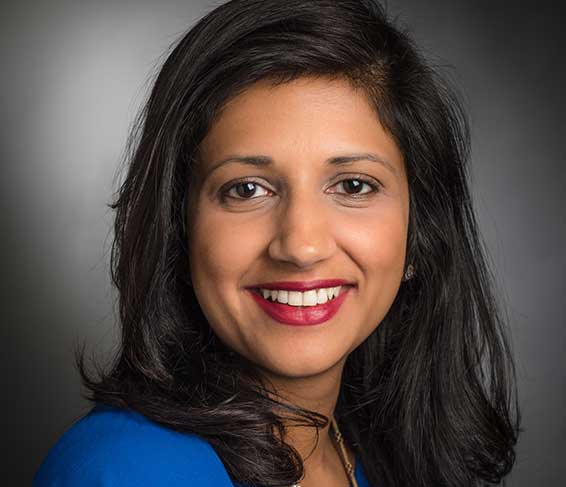Key Takeaways:
- CHEK2 is a tumor-suppressor gene that protects cells from becoming cancerous.
- People who inherit mutations in the gene are at increased for certain types of cancer and may benefit from more frequent screening.
CHEK2 is the abbreviated name of the gene called checkpoint kinase 2. The gene provides cells with instructions for making the protein CHK2, which becomes active when DNA within the cell is damaged or strands of DNA break.
What does the CHK2 protein do?
CHK2 and other proteins respond to DNA damage by halting cell division and assessing whether the cell is better off repairing the damage or self-destructing for the good of the body. This process ensures that cells with genetic damage or mutations don’t pass the “bad” DNA on to their descendants when they divide. Such mutations can be a first step toward cancer. Because it helps prevent cells from becoming cancerous, CHEK2 is known as a tumor-suppressor gene.
When CHEK2 itself is mutated — when the DNA that constitutes the gene acquires an error — its ability to perform its assigned role is reduced. Without a properly functioning CHEK2 gene, cells lose a key restraint on their growth and may be a step closer to the unbridled division of cancer.
What types of cancer have CHEK2 mutations?
CHEK2 mutations are found in a variety of cancer types, including breast, kidney, thyroid, and other cancers, according to the National Institutes of Health. The mutations have also been found in some brain tumors and in osteosarcoma, a form of bone cancer.
What are the risks for people born with a CHEK2 mutation?
People who inherit a CHEK2 mutation have a higher risk of developing certain types of cancer. The risk of breast cancer in women with a CHEK2 mutation is believed to be at least double that of women without such a mutation. Because of this increase, women with the mutation are advised to have more intensive breast screenings.
The degree of increased risk of colorectal and prostate cancer linked to a CHEK2 mutation is unclear, but people with such mutations should talk to their primary physicians and genetics team about screening for these cancers.
Most individuals who carry a mutation in CHEK2 have one normal copy of the gene and one mutated copy. Because children inherit one copy of each gene from each of their parents, people with a CHEK2 mutation have a 50% chance of passing on the mutation to their children. And, because CHEK2 mutations are usually genetically transmitted, people who learn they carry such a mutation should inform their close family members so they can be tested for it, if they choose.
What have scientists learned from recent research into CHEK2?
CHEK2 is subject to many different mutations — misspellings of the DNA within the gene. Depending on where these mutations occur, they can affect the gene in a variety of ways: some shut it down or interfere with its activity; others cause a flawed version of CHK2 to be produced.
In a recent study, Dana-Farber researchers led by Human Rana, MD, MPH, and Brittany Bychkovsky, MD, MSc, analyzed data from thousands of patients to see if certain mutations were associated with specific types of cancer. They found that regardless of which CHEK2 mutation patients had, it was linked to breast, kidney, and thyroid cancer — and not to colorectal cancer, which was previously thought to be more common in people who inherit a CHEK2 mutation. They also found three common low-risk variants that are only linked to breast cancer. Genetic counselors can use this information to give patients born with a CHEK2 mutation a better understanding of their cancer risk.
About the Medical Reviewer

Dr. Rana received her MD from the Robert Wood Johnson Medical School at the University of Medicine and Dentistry of New Jersey in 2007. She completed her residency in internal medicine and her fellowship in genetics and genomic sciences at the Mount Sinai School of Medicine. She received her MPH from Harvard T.H. Chan School of Public Health in 2020. Dr. Rana joined the Dana-Farber Cancer Institute in 2012.

My daughter is homozygous for chek2 1100del.c. She had two different breast cancers and thyroid cancer by age 25. We have heard differing warnings about this condition. Any updates?
Thank you for reading. Due to the high volume of comments we receive, we are usually unable to respond to each person individually. If you have a specific medical question related to this blog post, we would recommend talking to your doctor or other care provider. We’ve also gathered answers to some of the more frequent questions below:
-For more information on a particular type of cancer or the latest updates we have available, please visit our website (https://www.dana-farber.org/) or search our blog by clicking the magnifying glass at the top of our homepage: https://blog.dana-farber.org/insight/
-For information on whether you would be eligible for a certain treatment, please visit our website for more information on how to make an appointment or get an online second opinion: https://www.dana-farber.org/appointments-and-second-opinions/
-For information on clinical trials available at Dana-Farber and elsewhere, please visit the Dana-Farber database: https://www.dana-farber.org/research/clinical-trials/find-a-clinical-trial/. For clinical trials outside of Dana-Farber: http://www.clinicaltrials.gov.
Wishing you all the best,
Dana-Farber Insight team